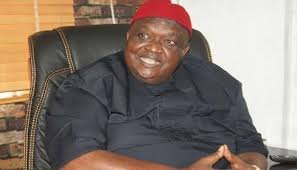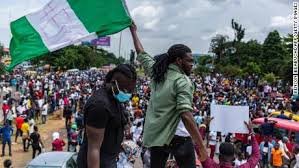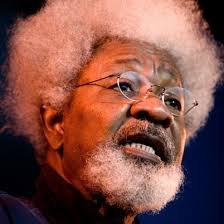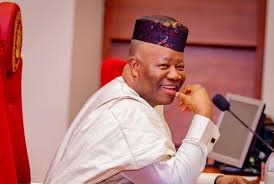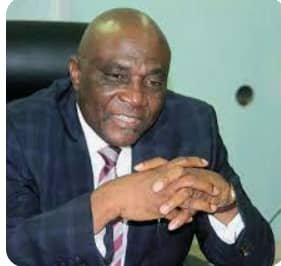By SHEDDY OZOENE
On Monday, November 11, 2019, I wrote a very critical article on the government of Kogi State at the time. In my opinion, the state governor, Alhaji Yahaya Bello had not done enough to lift the poor condition of the state’s infrastructure and nearly 30 years after the state was created, the capital, Lokoja, still looked like a fishing settlement.
The piece, published in TheNEWS, went with the title ‘Ajaokuta: The tragedy of Yahaya Bello’s misgovernance’. My concern was the poor manner in which the government in a state reeling with unemployment, lack of any visible industrial base and a few opportunities for private commercial activity, was treating the industrial strip that was rising in Ajaokuta.
It was easy to conclude that if it was a true reflection of the governor’s attitude to the state’s development, then he had no business being on the ballot for reelection in a few months.
The gigantic Federal government-owned steel complex in Ajaokuta is still lying comatose, but beside it, however, a new industrial complex had arisen, attracting multi-million dollar investments from Nigerian industrialists and the ubiquitous Chinese. Giant ceramics factories were springing up along the major road in Ajaokuta, covering over 5 kilometers on both sides before the bridge across the River Niger, the same stretch where the road is most horrendous.
What could be more discouraging to those investors, that the road through which their products were to be evacuated, could not receive the state government’s priority attention?
The raw materials for ceramics abound in the area, and though the cluster of industries utilizing the raw material is impressive, it is still a tip of the iceberg compared to what is to come in the future. With such potential, it was a paradox that the state would do so little to encourage the firms and embrace the opportunities in those investments. The road in that same 5-kilometer stretch represented the worst anywhere in Nigeria. It was so bad that motorists queued for hours on that bad stretch, with some inside the hollow craters in the median.
Kogi State is strategically located in the centre of Nigeria, but commuting through its cities was always a nightmare. If the traffic in Lokoja, Okene and Kabba are bad, that of Ajaokuta was horrifying at the time if you add the menace of hundreds of trucks and articulated vehicles that now converge there, waiting to move ceramic products from the factories.
Ajaokuta was not an isolated case as the Zariagi-Kabba road, the Kabba-Isanlu-Egbe road and the Dekina-Bassa roads were also impassable. While some have argued that those roads should not be the yardstick with which to assess Bello’s performance, mainly because they are federal roads, the question that comes to mind is: which state governor enjoyed a chummier relationship with President Buhari than Bello who was the President’s favourite political godson? If Bello could convince the President to approve the release of a whopping N10 billion to him on the eve of an election, in the name of refund for the state government’s intervention on federal roads, getting him to repair a 5 kilometer road, with all the spiral economic benefits should not have been too difficult.
Kogi deserved more than the low-energy performance that Bello was offering in most sectors. Misery and hopelessness were generally prevalent and they were all written on the people’s faces. The civil service was crumbling and the security situation in the state was easily one of the worst in the country.
Anyways, that was the background to the piece I wrote over 50 months ago. Suffice it to say that Yahaya Bello was eventually on the ballot against my thoughts, and he won his reelection in 2019. It is arguable but many say his last 4 year tenure as Kogi State governor was markedly different from his first. The visit by officials of the Nigerian Guild of Editors penultimate weekend was an opportunity to see what changed.
Lokoja may not have changed dramatically, but the expansion of the major internal road has eased movement of traffic, just like the state’s first flyover at Ganaja junction improved substantially on the flow of vehicular traffic. The Muhammadu Buhari Square, which compares well with the popular Eagle Square in Abuja, gives the capital a venue to host major outdoor events. Apart from the new look of the hitherto bad portion of Ajaokuta road, the 31 kilometer Itakpe Junction-Okene road is the other critical intervention in the state road network.
There are, however, a few other shining lights in the administration’s records, and the investments in healthcare and education readily come to mind.
The establishment of the Confluence University of Science and Technology, CUSTECH, and the Kogi State University, Kabba, easily stands out as notable legacies of the Bello administration. CUSTECH, which sits on a land area of nearly 400 hectares in Osara, along the Okene-Lokoja road, is a well-conceived tertiary institution with well laid out road networks and imposing buildings. Conceived in 2000, the university commenced academic activities in 2021; today, it has nearly 3000 students in the 7 faculties so far approved by the National Universities Commission.
The Kogi State University, Kabba, which he also established last July, has also taken off to a convincing start, holding its first matriculation last January.
Only the six gigantic teaching and reference hospitals spread across the state – two per senatorial district – come close to the universities in terms of magnitude and strategic importance.
Indeed, Yahaya Bello did well in the field of education: primary, secondary, and tertiary. Though he only inherited the one established by Prince Abubakar Audu in Ayangba, it is to his credit that Kogi State has today joined the few states in Nigeria that boast a state university in every senatorial district.
Would those be enough to score that administration a pass? It is doubtful.
My general perception of the man may not have changed substantially, but those investments in key development areas are worth noting. How they counter whatever deficit his administration recorded in other areas of the state’s development, is another thing.



